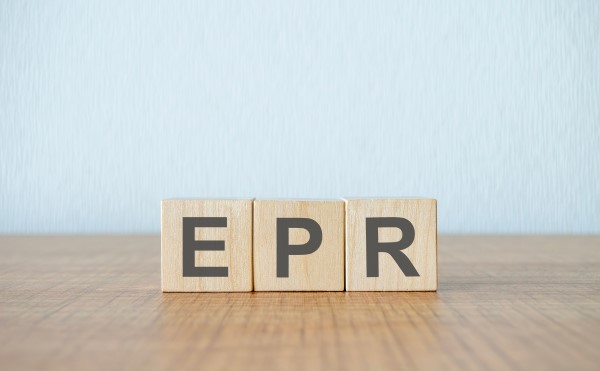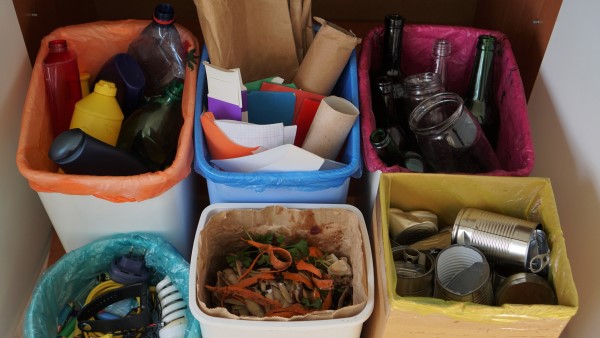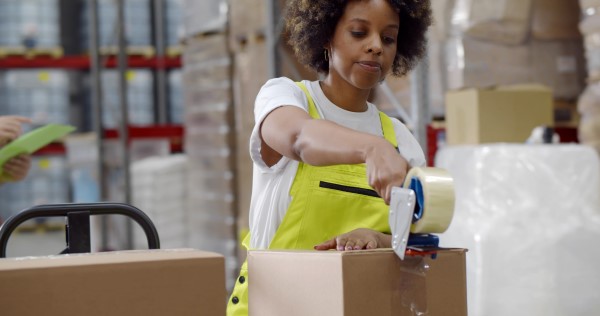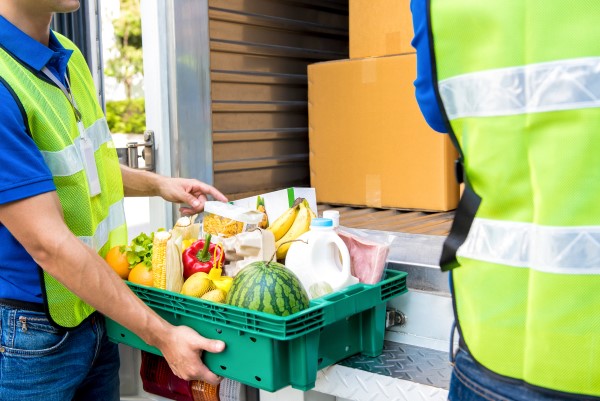Kite blog
Extended Producer Responsibility in UK Packaging: What Businesses Need to Know
Changes to the UK packaging waste regulations
Are you confident your business is compliant with the UK’s new packaging waste regulations?
The introduction of the Extended Producer Responsibility (EPR) legislation means businesses placing packaging on the UK market will now bear full financial responsibility for managing that packaging once it becomes waste.
This includes covering the cost of collecting, sorting, and recycling. However, not all businesses are obligated producers. Specific criteria determine who must comply.
Our guide explains everything you need to know about EPR for packaging in the UK. Learn more about what it is, who it applies to, key deadlines and what the next steps are for those who need to act.
Understanding Extended Producer Responsibility for packaging
The UK’s packaging waste regulations have undergone some serious changes in recent years, with a big emphasis on corporate social responsibility.

EPR at a quick glance
- EPR replaces existing Packaging Waste Regulations 2007, making producers financially responsible for their packaging waste.
- The goal? To reduce packaging waste, increase recycling rates, and shift costs from local authorities to businesses.
- Producers, manufacturers, and suppliers will now pay extended producer fees depending on the type and volume of packaging they place on the UK market.
What is Extended Producer Responsibility?
EPR is a government-led policy designed to hold businesses accountable for the entire lifecycle of their packaging waste.
Businesses that place packaging on the UK market must:
- Fund the full costs of waste collection, sorting, and recycling.
- Report accurate data on the packaging materials they use.
- Reduce unnecessary packaging and switch to sustainable alternatives.
Previously, local governments managed and funded household waste collection. Under the new regulations, businesses that are responsible for packaging production and distribution will offset these costs.
For UK packaging producers, understanding and complying with EPR is now a legal requirement.
Kite Packaging can help. But first, let’s take a look at why these changes have come about.
Why has EPR been introduced?
The UK’s Extended Producer Responsibility scheme was introduced to address shortcomings in the previous packaging waste regulations.
Packaging Waste Regulations 2007
Before the Extended Producer Responsibility regulations, there were the Producer Responsibility Obligations. These came into effect in 1997 and were later revised to the Packaging Waste Regulations 2007.
Their aim was to:
- Reduce landfill waste
- Promote sustainability
- Make packaging producers responsible for recycling and recovery
These obligations shared some similarities with EPR.
If your business handled more than 50 tonnes of packaging annually with a turnover exceeding £2 million, then you were responsible and had to register with the Environment Agency or join a compliance scheme.
PRNs
To fulfil your responsibilities, your business had to meet recycling targets by purchasing Packaging Recovery Notes (PRNs) or Packaging Export Recovery Notes (PERNs) from accredited recyclers.
Costs and recycling duties were shared among all contributors across the packaging supply chain: from manufacturers and importers, to packers, fillers, distributors and sellers.
The system was a huge success, increasing the recycling rate of UK packaging waste from 25%, 28 years ago to 64.8% in 2023. Over this period, we exceeded all UK and EU packaging waste recycling targets.
So, what exactly was the issue?
Funds generated by the PRN system covered only a fraction – around 7% – of the actual cost of managing post-consumer packaging waste, amongst other issues:
- No direct link between PRNs/PERNs and actual recycling efforts, opening the door to greenwashing and fraud.
- PERNs were often cheaper, incentivising exports over investment in UK recycling infrastructure.
- Large volumes of waste were sent overseas, sometimes ending up in countries with poor environmental controls or illegal dumps.
- PRN prices fluctuated based on supply and demand rather than reflecting the true cost of recycling.
- Businesses didn’t have to improve their packaging design – they complied simply by purchasing certificates, even for non-recyclable materials.
Because of this flawed system, the UK struggled to build a robust domestic recycling industry.
When China introduced their National Sword Policy in 2018, banning the import of contaminated foreign waste, our reliance on exporting waste was exposed. It was obvious that the UK’s waste management system needed urgent reform.
The government’s response to these issues is EPR, which is being phased in to:
- Shift the full cost of managing packaging waste from taxpayers to the producers themselves.
- Directly reinvest funds into improving UK recycling systems and infrastructure.
- Encourage better packaging design through eco-modulated fees where difficult-to-recycle packaging incurs higher charges.
Though the PRN system will remain in place for now, it will operate under stricter oversight and greater transparency. Alongside EPR, it will help us meet recycling targets – but with added pressure on businesses to make more sustainable packaging choices.
Is your business affected by EPR?
For businesses that:
- Turnover £1 million or more annually AND/OR
- Handle 25 or more tonnes of packaging a year
There are varying obligations depending on whether you are classed as a ‘small’ or ‘large’ organisation.
Small organisations
You’re a small organisation if your business:
- Turns over £1-2 million annually and supplies/imports more than 25 tonnes of packaging in the UK.
- Turns over more than £1 million annually and supplies/imports 25-50 tonnes of packaging in the UK.
Large organisations
You’re a large organisation if your business:
- Turns over more than £2 million annually.
- Supplies/imports more than 50 tonnes of packaging in the UK.
Packaging definition
The packaging in question has been defined by the GOV.UK website as follows:
“Packaging is any material that is used to cover or protect goods that are sold to consumers. It makes handling and delivering goods easier and safer. It includes anything that’s designed to be filled at the point of sale, such as a coffee cup.
Packaging also makes goods look appealing and it may display a company’s logo or brand. ‘Goods’ could include raw materials or processed items.”
The government has set very clear distinctions for the type of packaging EPR applies to – household.
Household packaging

Household packaging is central to the UK’s Extended Producer Responsibility legislation. This type of packaging refers to materials that end up in homes – think food containers, drink bottles, delivery boxes, product wrapping and so on.
In 2024, the UK generated an estimated 28 million tonnes of household waste. Despite efforts to boost recycling, the recycling rate for household waste in the UK was 44.0% in 2023/24, down from 44.1% in 2022 and 44.6% in 2021.
While the year-on-year drop is small, the declining trend underscores the need for stronger recycling measures. EPR will help increase the proportion of household packaging waste that is recycled properly, reducing landfill use and helping the UK progress toward its goal of recycling 65% of municipal waste by 2035.
For large organisations, correctly identifying and reporting whether their packaging is classified as household or non-household is essential for EPR compliance.
This distinction affects the obligations and costs that businesses face, making accurate reporting a key step in fulfilling your environmental responsibilities.
Household vs non-household packaging
Non-household:
- Secondary packaging, e.g., a box holding multiple products
- Tertiary packaging, e.g., pallets and shrink wrap used for transport.
EPR fees do not apply to secondary and tertiary packaging used to transport goods in B2B applications. However, you must still purchase PRNs for these.
Household:
- Primary, e.g., packaging that directly holds a product
- Shipment packaging, e.g., boxes used for online orders
When primary and shipment packaging can be classed as non-household
You can treat primary or shipment packaging as non-household if:
- You supply it to a business or public institution that removes all the packaging before giving it to the end user.
- The product is designed only for business use, and the packaging is unlikely to end up in a household or public bin.
- You import packaging into the UK and discard it before selling the product.
You must keep evidence for at least 7 years to prove this. If you can’t provide proof, you must class the packaging as household and check whether it meets the criteria of packaging that often ends up in public bins.
Packaging activities

If your business is involved in any of the following packaging activities:
- Placing packaged goods on the UK market under your own brand
- Packaging goods
- Importing products in packaging
- Owning an online marketplace
- Hiring or loaning out reusable packaging
- Supplying empty packaging
Then you may need to act.
Placing packaged goods on the UK market under your own brand
If you sell products or goods in packaging labelled with your brand, you may need to act.
This includes any logo, trademark, or distinguishable marks.
This also applies if you pay another company to do any of the following for you:
- Produce branded packaged goods to be sold under your brand name.
- Pack branded packaged goods to be sold under your brand name.
- Place your branded packaged goods on the UK market.
- Import branded packaged goods for you.
Packaging goods
- If you place goods for your own organisation or another organisation into packaging, you may need to act.
Importing products in packaging
You may need to act if you import products from outside the UK and sell them in packaging. This applies even if:
- The products are packed or filled in the UK by another company
- You remove and discard the packaging before selling the goods
You don’t need to act if:
- The packaging is branded, and you imported it on behalf of a UK-based brand owner.
- The packaging is unbranded, and you supply it to a large company that adds its branding before selling it.
Check the ‘large or small organisation’ section to see if these rules apply to you.
Owning an online marketplace
If you run a website or app that lets non-UK businesses sell goods to UK customers, you may need to act under EPR for packaging.
If your platform only sells goods from UK businesses, this rule doesn’t apply – but you should check if other packaging regulations affect you.
Hiring or loaning out reusable packaging
If your businesses rents out reusable packaging, you may need to take action under EPR rules.
For example, some companies provide plastic crates to retailers for delivering fresh produce. After use, the crates are returned, cleaned, and sent out again.

Supplying empty packaging
If you make or import empty packaging and supply it to a small or a large business that doesn’t fill the packaging, you may need to act under the EPR rules.
To find out if a business is large or small, check the ‘large or small organisation' section.
Key EPR data reporting deadlines
| Date | Obligation |
| 1st October 2023 | Large producers submit Jan-June 2023 packaging data |
| 1st April 2024 | Large producers submit July-Dec 2023 packaging data |
| 1st October 2024 | Large producers submit Jan-June 2024 packaging data |
| 1st April 2025 | Large producers submit July-Dec 2024 packaging data Small producers submit data for all activities in 2024 |
| October 2025 | Large producers begin paying EPR fees |
What does your business need to do?
If you supply or import packaging, you may need to:
- Track and report how much packaging you use.
- Pay fees for waste management and recycling.
- Cover administrative costs for the scheme.
- Pay environmental regulator charges.
- Obtain recycling certificates (PRNs or PERNs) to meet recycling requirements.
- Report where in the UK your packaging is supplied and discarded (nation data).
What you need to do depends on whether your business is classed as ‘small’ or ‘large,’ which is based on your annual turnover and the amount of packaging you supply or import.
EPR for small producers
Small producers don’t have to pay full EPR fees, but must still:
- Record and submit data on the type and volume of packaging they place on the market.
- Make these submissions once year for transparency to help the government monitor packaging waste streams.
The data-only obligation helps inform the wider system while reducing the administrative and financial burden on smaller businesses. However, it still promotes awareness and encourages more sustainable packaging decisions at all business levels.
This will help build a complete and more accurate picture of packaging waste in the UK, which is essential achieving national recycling and sustainability targets.
EPR for large producers
Large producers must:
- Pay full EPR fees to cover the cost of collecting, sorting, recycling, and disposing of household packaging waste.
- Submit detailed packaging data twice a year, broken down by material type and packaging category.
- Comply with modulated fees, meaning the recyclability of their packaging directly impacts the amount they pay. Less recyclable packaging incurs higher charges.
- Provide “nation data” on where packaging is sold, hired, loaned, gifted or discarded across the UK (England, Northern Ireland, Scotland, Wales).
- Register with the appropriate scheme administrator and ensure ongoing compliance with reporting deadlines.
By making producers financially responsible for the entire lifecycle of their household packaging – from design to disposal – EPR creates a powerful incentive for businesses to rethink their approach.
EPR for parent companies, groups and subsidiaries
Parent companies and subsidiaries can comply:
As part of a group of companies
- You need to add up the turnover and packaging weight for all group members who supply or import packaging.
- If the combined total meets the rules for either a small or large organisation, then each company that supplies or imports packaging must follow the EPR rules – even if some of them wouldn’t qualify on their own.
- Ignore any parts of the group that don’t deal with packaging – they don’t need to report anything.
As an individual subsidiary
- You should create your own account and report separately from your parent company.
- If you supply or import any packaging, you must report, even if your turnover is small.
As a parent company reporting for some subsidiaries
- You can create a parent account and report for the subsidiaries that aren’t handling it themselves.
- Do not include any subsidiaries that have chosen to create their own accounts and report separately.
- Every subsidiary that supplies or imports packaging must report its data, no matter its size.
Reporting

You will be required to report data across the following key criteria:
- The purpose of the packaging, including primary, secondary, and tertiary uses.
- What the packaging is made from (e.g., plastic, paper/board, glass, metal, wood).
- The type or style of packaging (e.g., bottle, box, tray, bag).
- How many components the packaging has (e.g. a coffee cup has a lid, cup and sleeve).
- How much the packaging weighs, broken down by material type.
- What the business does with the packaging (e.g., places it on the market, imports it, or sells it empty).
- Nation data on where the packaging is supplied (England, Scotland, Wales, Northern Ireland).
- Whether the packaging is recyclable based on specific recyclability criteria.
- The colour of the packaging.
EPR fees
Exact fees for EPR are yet to be published by the government. However, illustrative base fees for the first year of EPR (2025 to 2026) were announced in December 2024 as follows:
| Material | Rate (in £ per tonne) |
| Aluminium | 435 |
| Fibre-based composite | 455 |
| Glass | 240 |
| Paper or board | 215 |
| Plastic | 485 |
| Steel | 305 |
| Wood | 320 |
| Other | 280 |
The "illustrative base fees" are rough estimates of the fees companies might need to pay under the new EPR system in 2025. They are based on a planned model for how much it will cost in total to dispose of packaging waste – but the final cost figures are still being double-checked.
What’s not included in these:
- Fees paid to environmental regulators (like the Environment Agency or equivalent in other parts of the UK).
- Costs related to meeting recycling targets, such as buying Recycling Notes.
To work out these early fee estimates, the government used packaging data that producers submitted for the first half of 2024 through an online portal (called the Report Packaging Data portal). Some adjustments were made to this data. These estimates are the best guesses they made with the information they had at the time.
However, the actual fees might end up being lower because:
- Some producers who should have submitted their data hadn't done it yet.
- Some producers submitted their data after the cut-off date (19 December 2024), so their information isn’t included.
- There could be more packaging reported in the second half of 2024 (due to seasonal differences), which would affect the overall numbers.
While these early estimates help businesses start planning, they aren't final. The actual fees will change once:
- More producers submit their data.
- Regulators review and monitor the data for accuracy.
The final fees for the first year of EPR will be published after 1 April 2025, once all the required packaging data for 2024 has been collected.
What are modulated fees?
Starting in year 2 of the Extended Producer Responsibility (EPR) scheme (from 2026 to 2027), the fees companies pay will change based on how recyclable their packaging is. Packaging that is harder to recycle will have higher fees, while packaging that is easier to recycle will have lower fees.
The specific types of packaging and the level of fees will be determined by a Recyclability Assessment Methodology (RAM), available at GOV.UK.
Additionally, Defra (the Department for Environment, Food & Rural Affairs) plans to share the general approach to how these fees will be adjusted with the industry for feedback in the first quarter of 2025.
How Kite Packaging can help

Navigating Extended Producer Responsibility (EPR) may feel overwhelming, especially if your business is managing large volumes of packaging.
Compliance schemes, like the one we run over at Kite Environmental Solutions, handle the entire process for you, from registration to fee calculations and buying PRNs, so you can focus on the things that matter the most to you.
While there are additional costs associated with using a compliance scheme, they can greatly streamline the process and help protect your business from potential fines due to errors or missed deadlines.
If you're a Kite Packaging customer, we can provide detailed data on your packaging purchases to support your reporting process. This can be especially helpful if you are managing your own compliance or working with a third party.
As a packaging distributor, we understand the importance of accuracy and transparency when it comes to EPR. That’s why our team is committed to helping you access the information you need, when you need it, to stay compliant and avoid unnecessary penalties.
Why choose Kite Environmental Solutions?
Kite Environmental Solutions, our compliance scheme, stands out as a trusted and results-driven compliance scheme, uniquely positioned within the UK packaging industry. Here’s why businesses choose us:
- Rated ‘Excellent’ by the Environment Agency, reflecting our strong compliance track record.
- Tailored data assessments designed for your business, ensuring accurate and efficient compliance.
- Dedicated account manager, expert consultancy, and on-site audits included as part of our service.
- PRN market monitored closely to provide competitive pricing and timely advice.
- Full support with Enforcement Undertakings if you’ve previously fallen short of compliance.
- The only compliance scheme embedded within a UK packaging company – offering unmatched industry insight.
- We attend Environment Agency audits on your behalf, with proven methodologies and no extra charge.
- With Kite Environmental Solutions, you're not just ticking boxes – you're partnering for long-term compliance success.
Summary
If your business uses or supplies packaging, it’s likely you’ll need to report your packaging data under the new Extended Producer Responsibility (EPR) regulations. However, whether you have additional obligations or financial responsibilities will depend on various criteria.
Not sure where your business stands? Contact Kite Packaging at EPR@kitepackaging.co.uk or 02476 420080 for tailored support with EPR compliance and sustainable packaging solutions.
